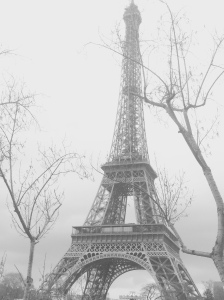One of the advantages of living in awareness of the present moment is that you begin to consciously experience what it means to live beyond stereotypes
I recall hearing Eckhart Tolle talk about this aspect of stillness in one of his videos on EckhartTolleTV.com The basic idea, as he explained it, is that being aware of other people as living beings requires attuning to their energy in the present moment. It is in this way that we can connect with each other more fully rather than relying on expectations, prejudices and stereotypes derived from our conditioning and socialization.
In my research, I spend a lot of time thinking about the consequences of ethnic and racial stereotypes on inter-group relations. Much of my work concerns the way minorities interpret and respond to everyday racism and discrimination. In my own life, I have also been surprised and disturbed by how difficult it can be to not be influenced by the lingering (negative and positive) preconceived ideas we have about each other. Usually these expectations are formed on the basis of appearance. I know all of this intellectually – and yet – even as a scholar concerned with race and antiracism, even as a person of color, even as someone who asserts solidarity with the LGBT community, even as a woman, even as a “spiritual enthusiast” with a universalist/nondual perspective — even I have had to confront the persistent and pernicious effects of stereotypes on my perception of others.
If I have found it difficult to “live beyond” stereotypes, then how much more difficult must it be for people who share no particular affinity for universalism, who are not directly concerned with discrimination or who have not had the good fortune of having friends and loved ones in diverse communities and cultures?
One of the most profound changes I’ve experienced as I’ve prioritized my spiritual life has been truly connecting with other people – not on the basis of my assumptions about them or my past experiences – but rather on the basis of the energy that arises in the immediacy of our interaction. As I began to put some of Tolle’s teachings into action, I noticed a remarkable flowering of my social life. I now find it so easy and natural to engage with others when I’m anchored in stillness. Instead of seeing folks through the lens of my expectations, they appear to me as they really are: awe-inspiring, beautiful manifestations of the Divine.
Now, when I encounter anyone – I find myself more automatically and easily feeling their aliveness. When and if stereotypes emerge in my mind, I notice them and use that awareness to draw me back into Presence. In the immediacy of the present moment, stereotypes and expectations simply burn away . . . how could they persist in the light of the “now”? As I more naturally connect with and sense others, I increasingly have breathtakingly beautiful experiences, exchanges and encounters with such a wide variety of human beings . . . all of which has made my life even more rich, inspiring and exciting than it already was.
Stereotypes deaden our relationships. They prevent us from seeing and connecting with what is real and essential about all of us. For me, it is not enough to simply acknowledge, intellectually, that prejudice and discrimination are “bad”. You can’t overcome the influence of conditioning and socialization through “good will” alone. What is really required is a conscious realization of who we really are – beyond identity, beyond the ego, and certainly beyond stereotypes. In the context of this understanding and inner knowing, connecting with others becomes natural and easy..not the result of effort. It’s the same process by which virtuous and “right” action naturally flows from “right” perception. When you know who you really are and you know who God really is, you don’t try to act like a good person, but goodness can simply flow through you like light shining through a transparent vessel. This is, of course, so much easier when we get our egos and past conditioning out of the way . . . in fact, getting over ourselves and living more fully in the present moment are both prerequisites for deeply experiencing love, peace and joy in our relationships with others. It’s in this way that we come to truly see that there are never really any “others” out there. There is only the Self, the oneness of God . . . and we are all made of, by and in It.



